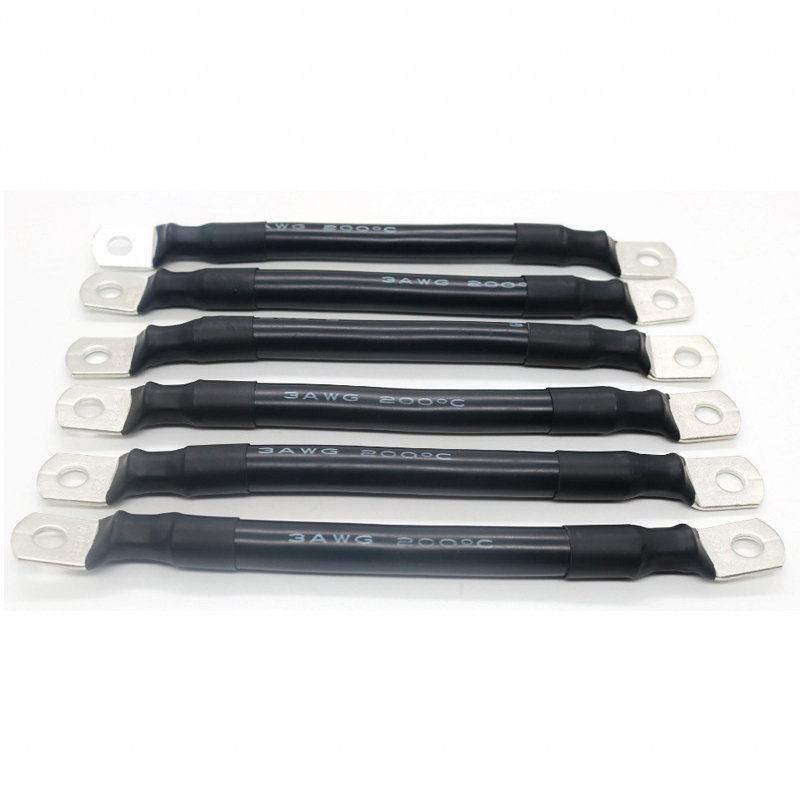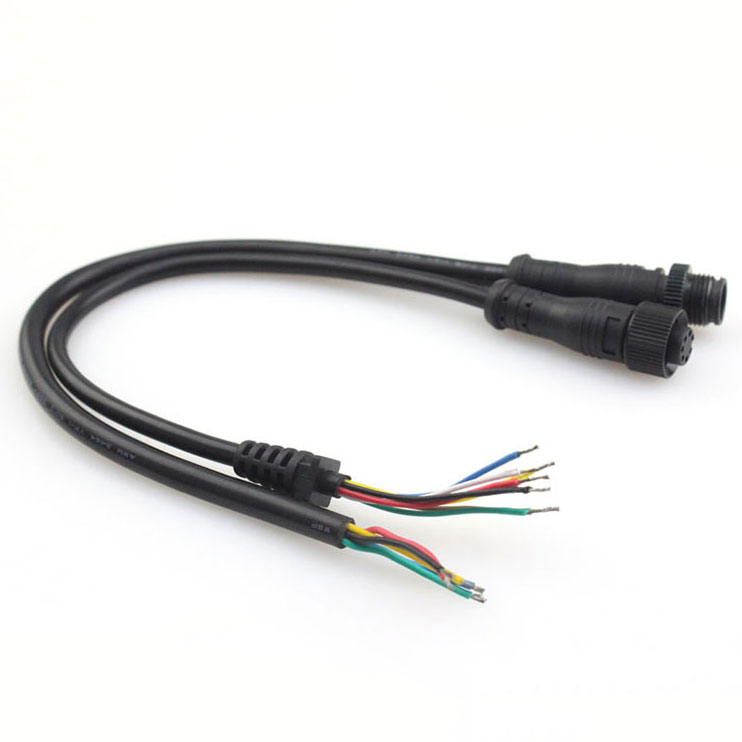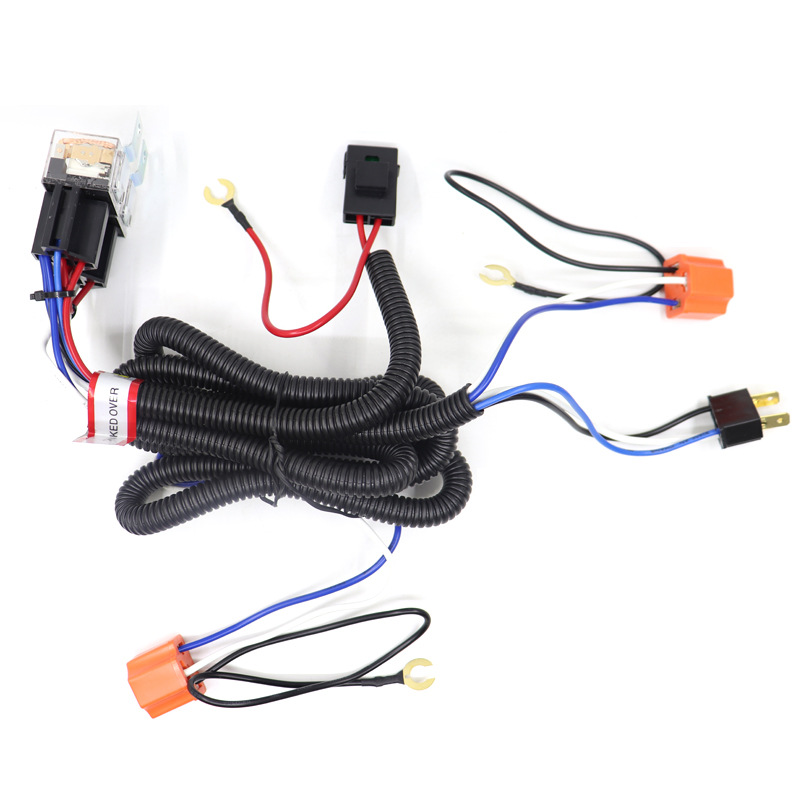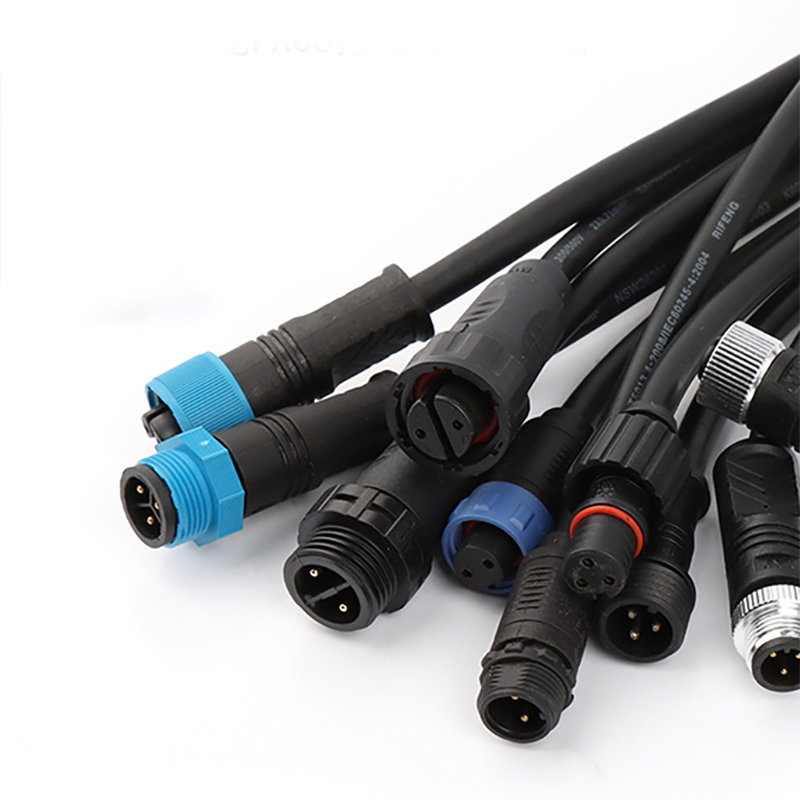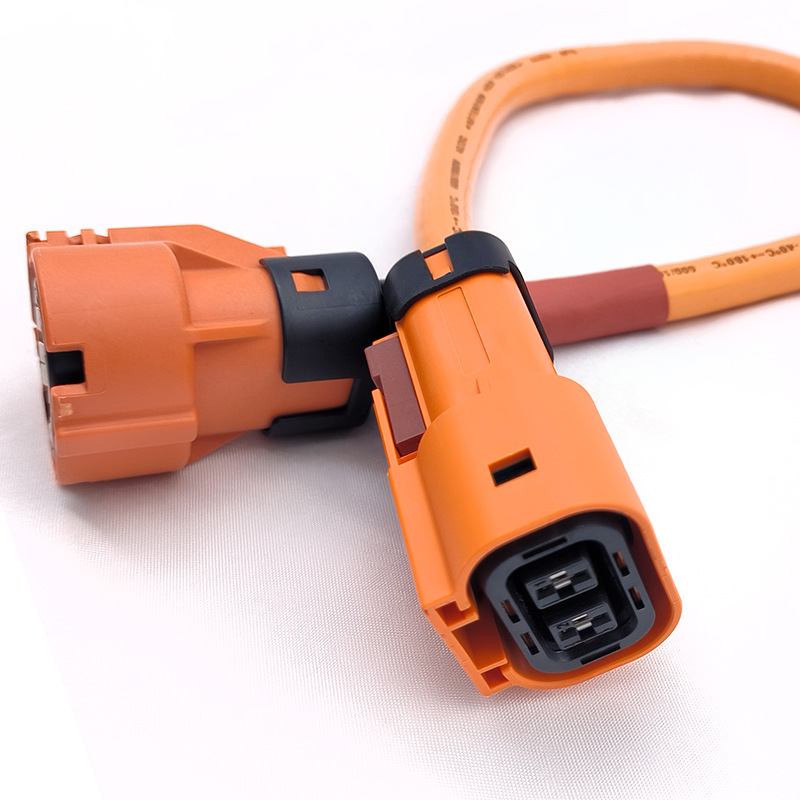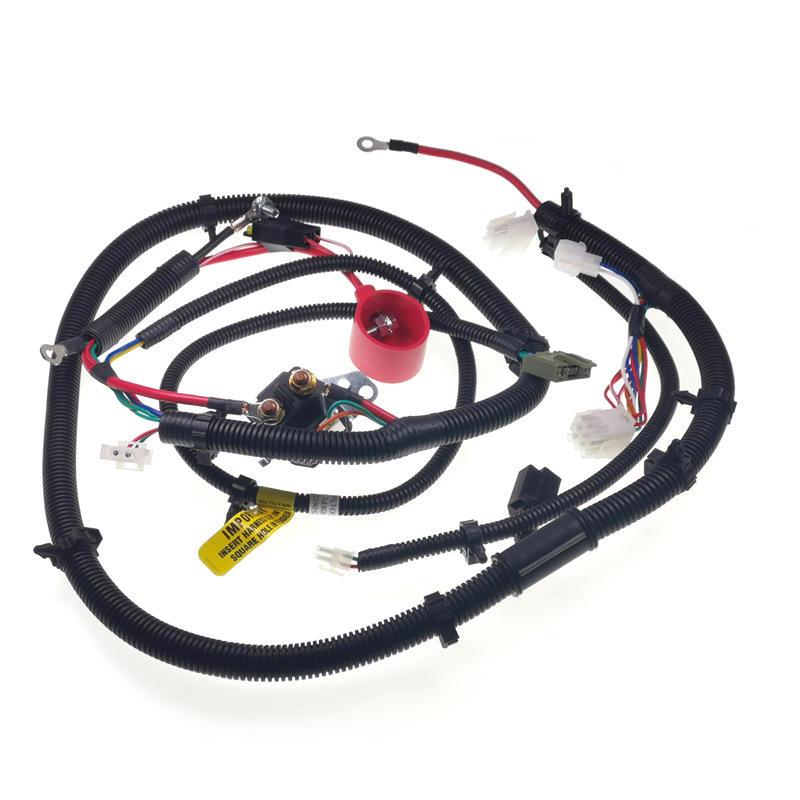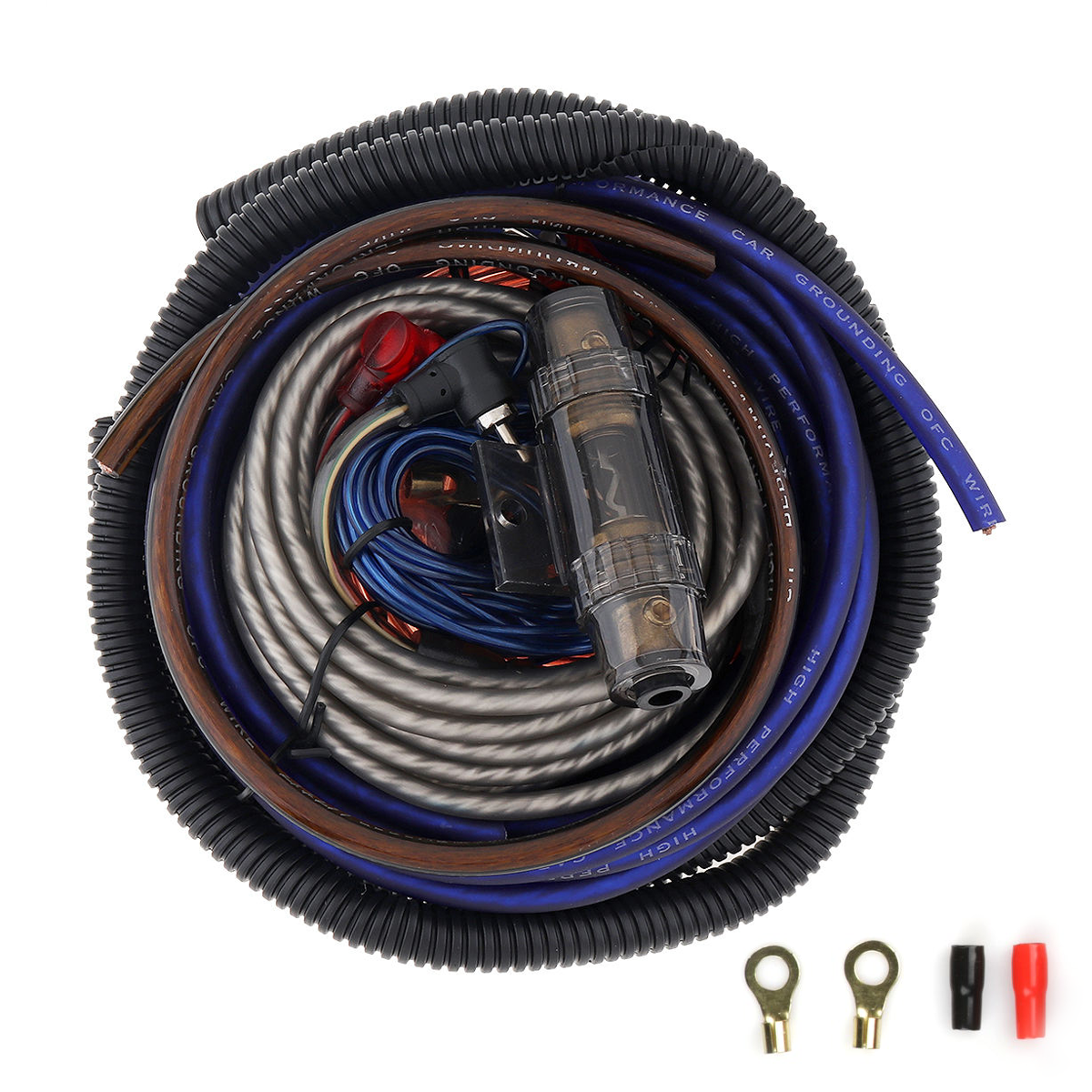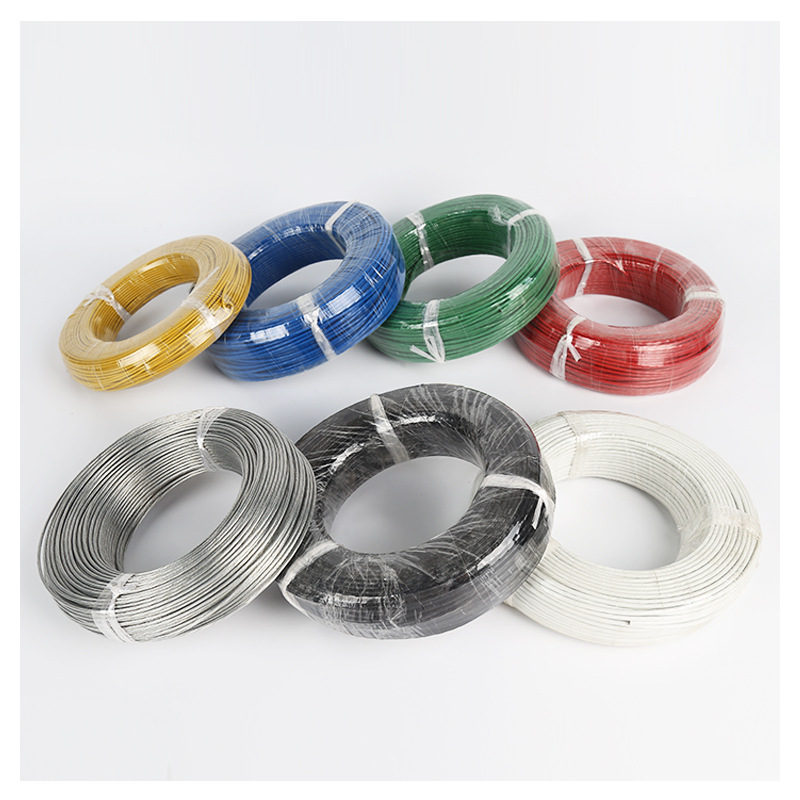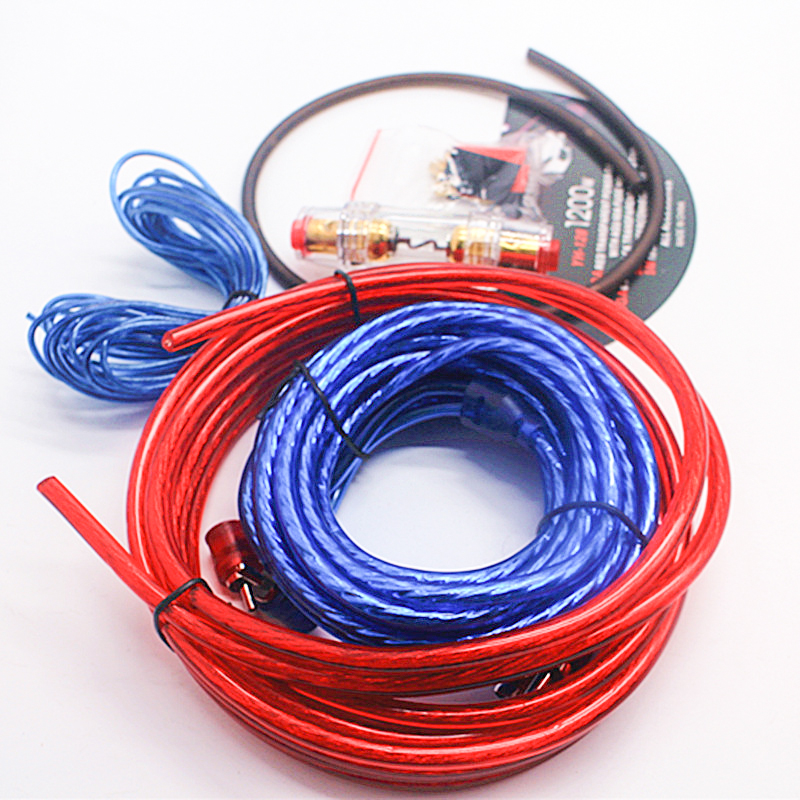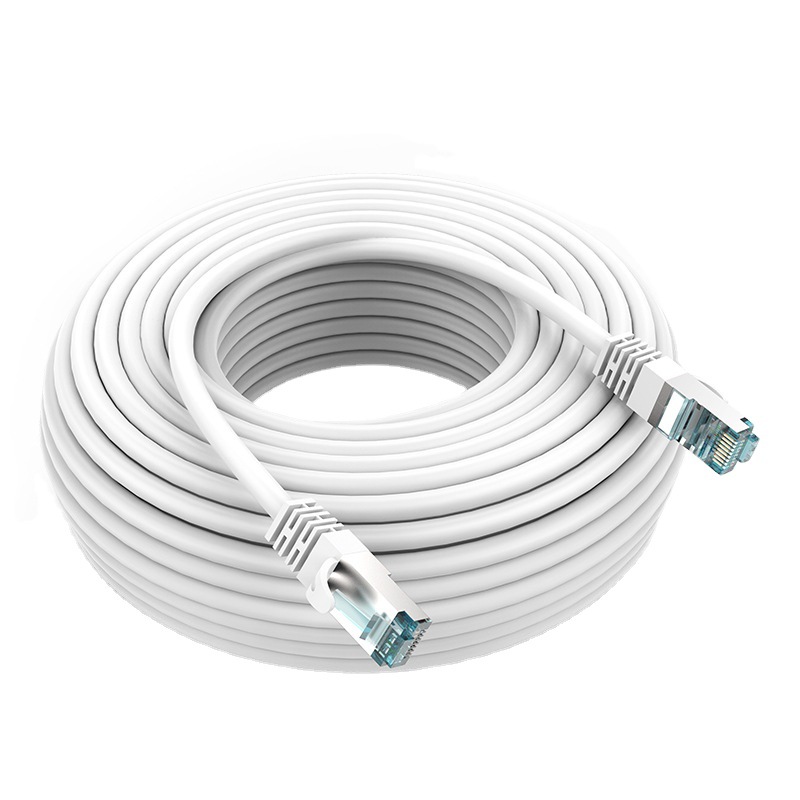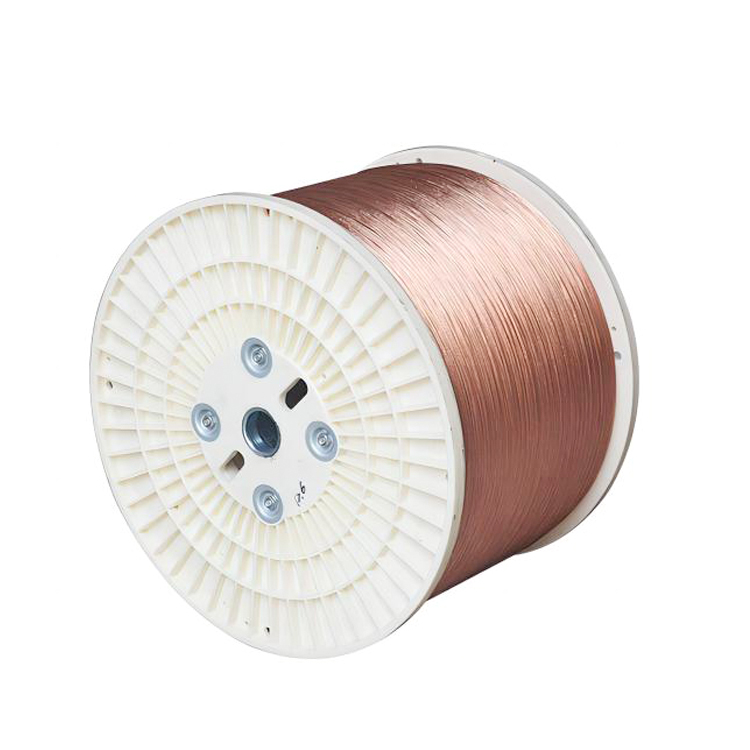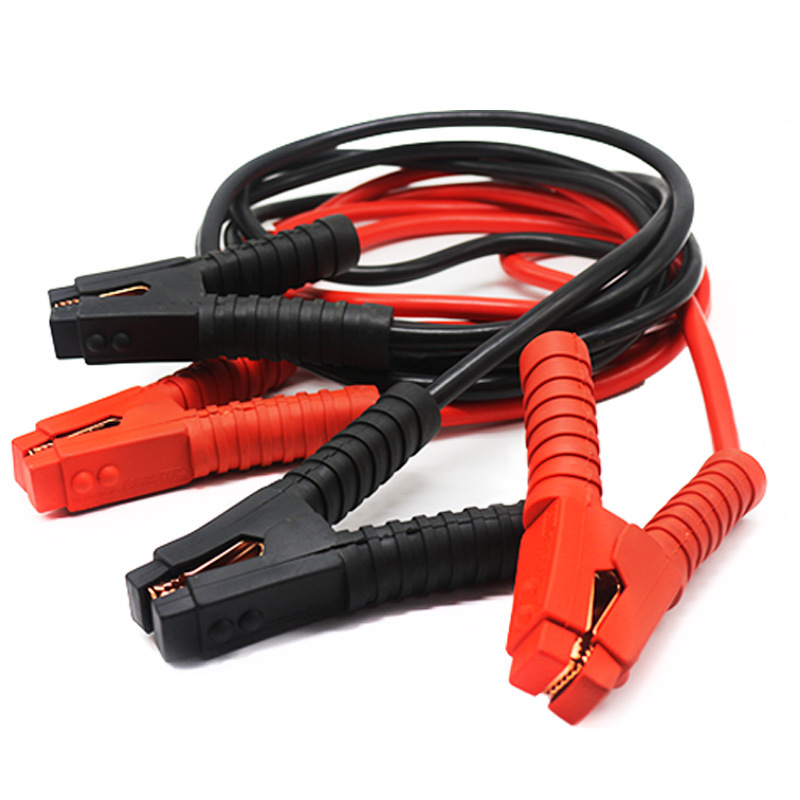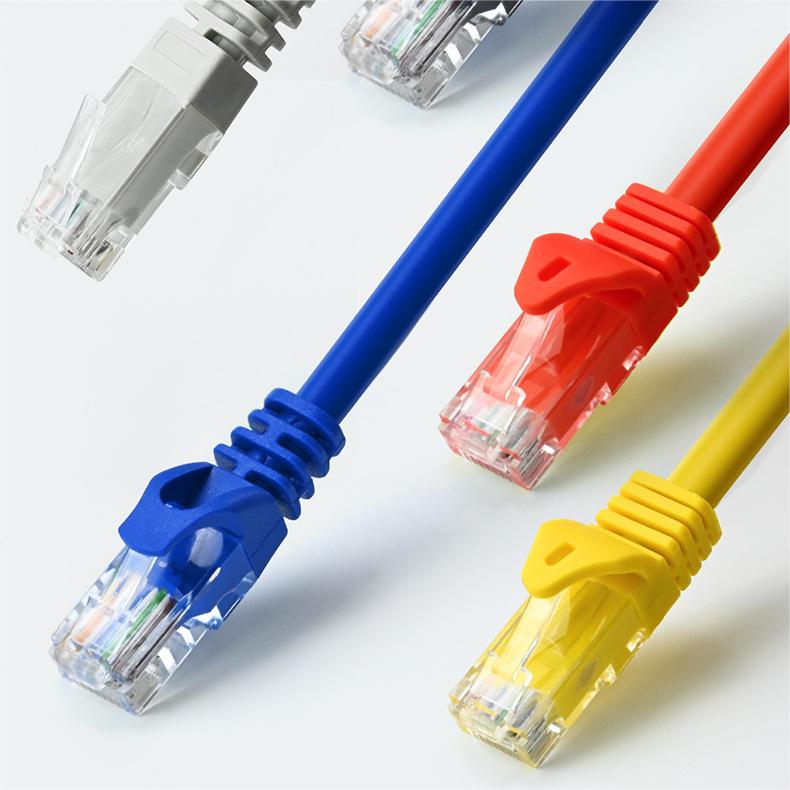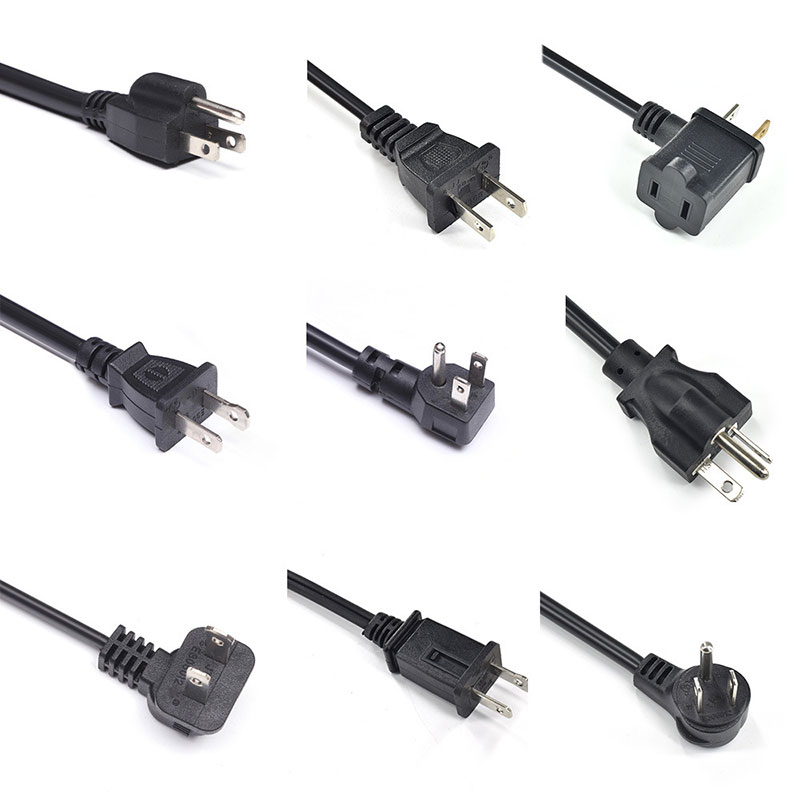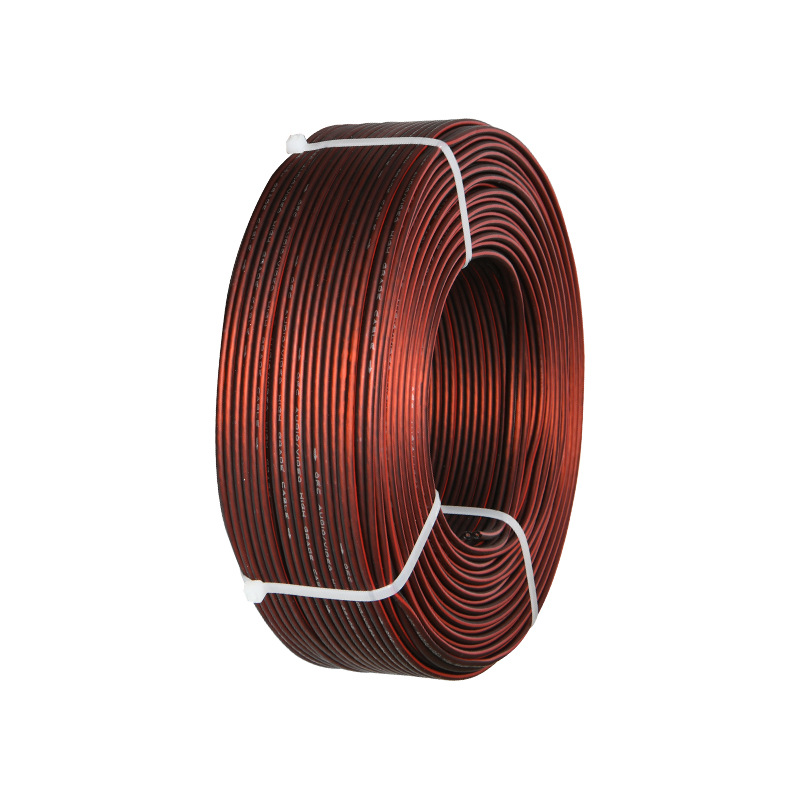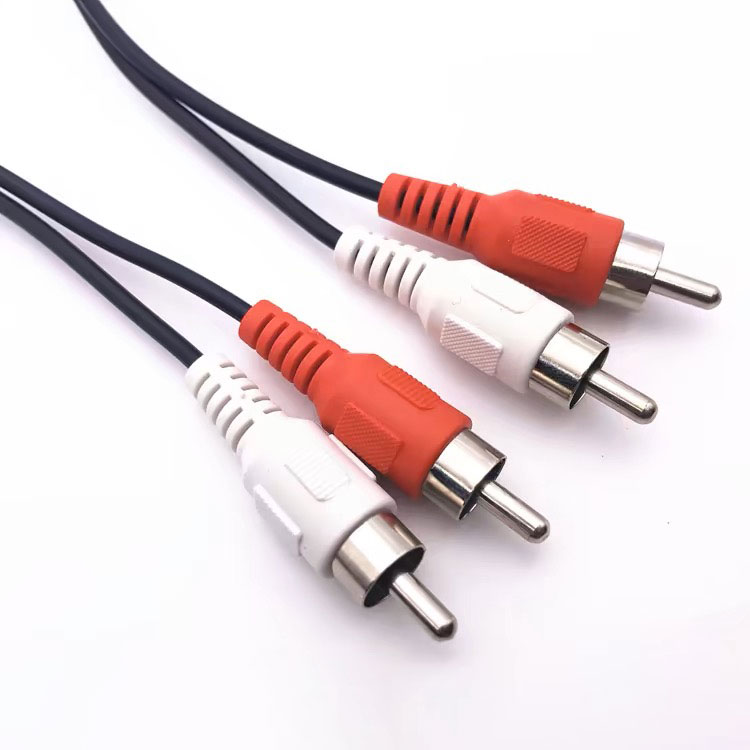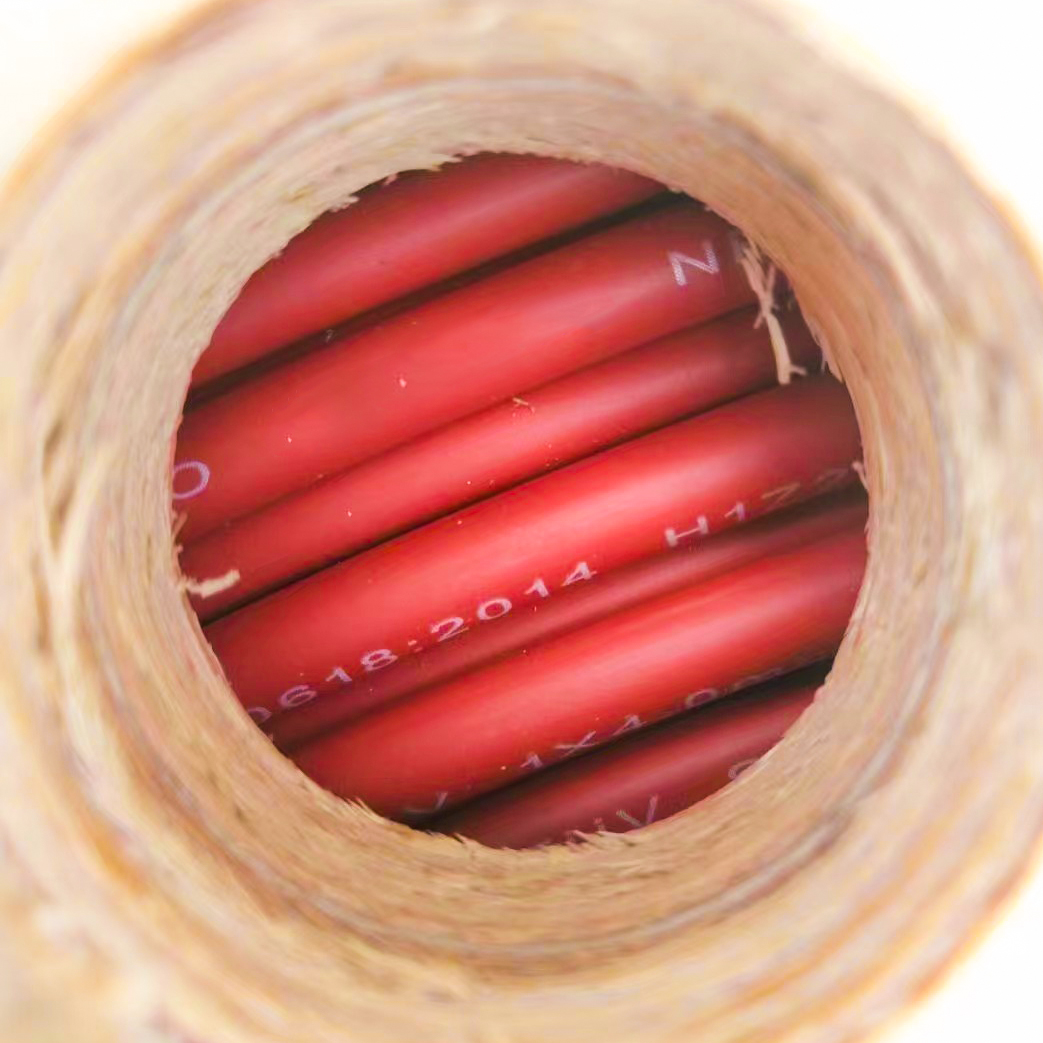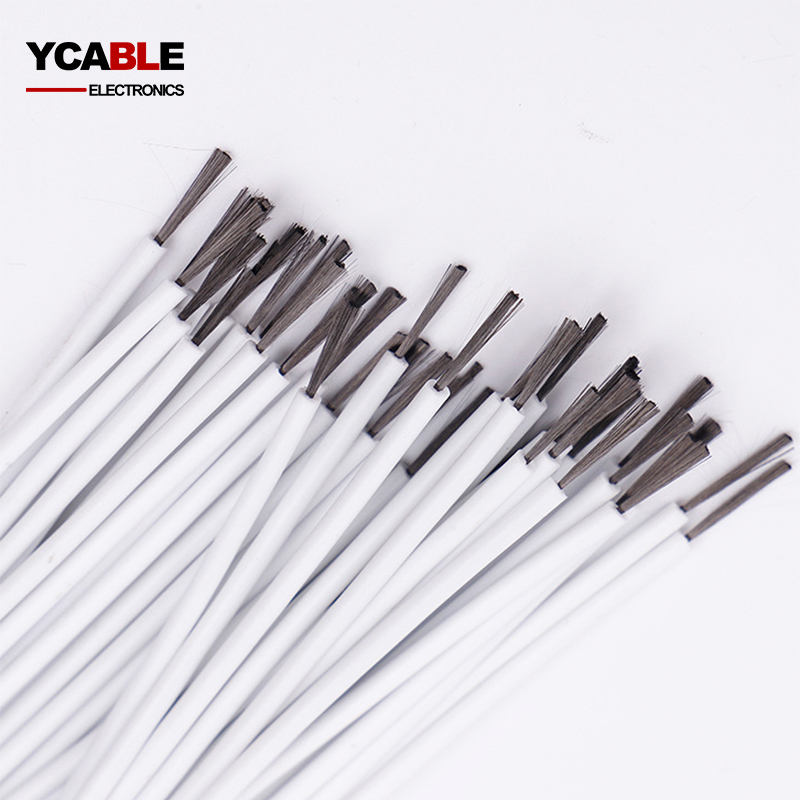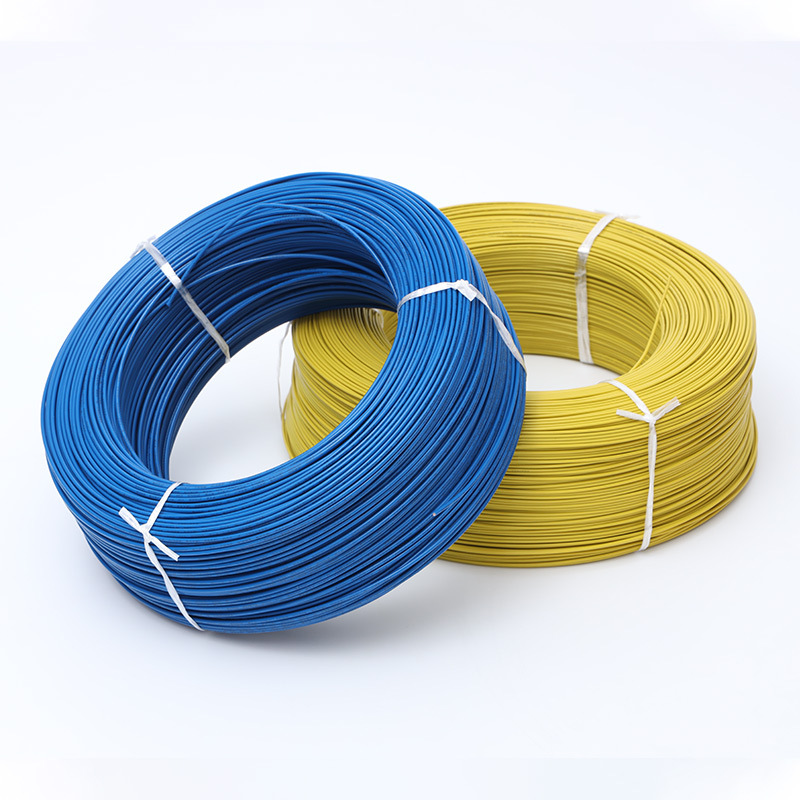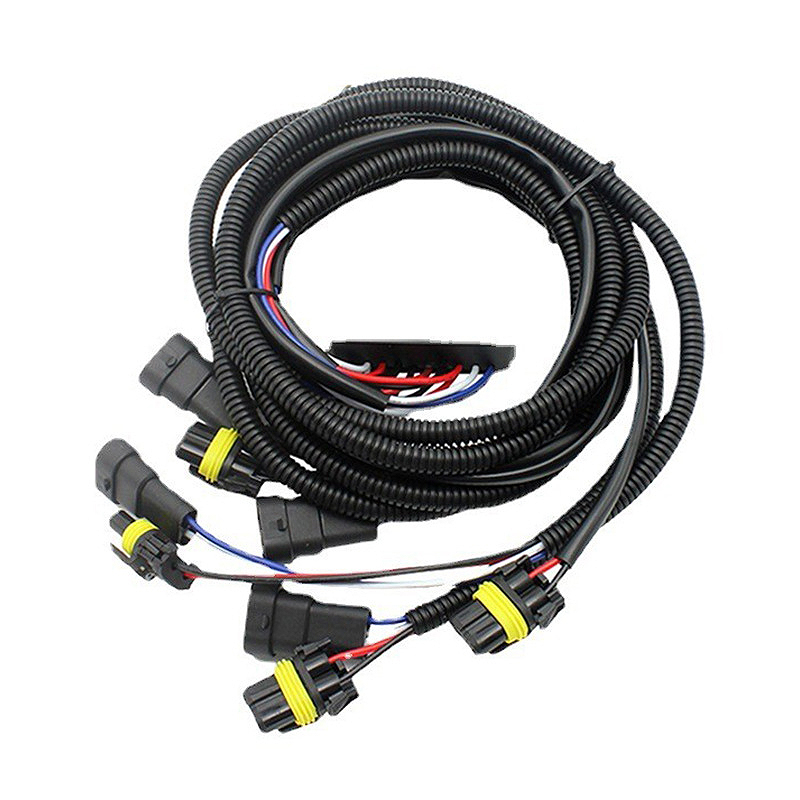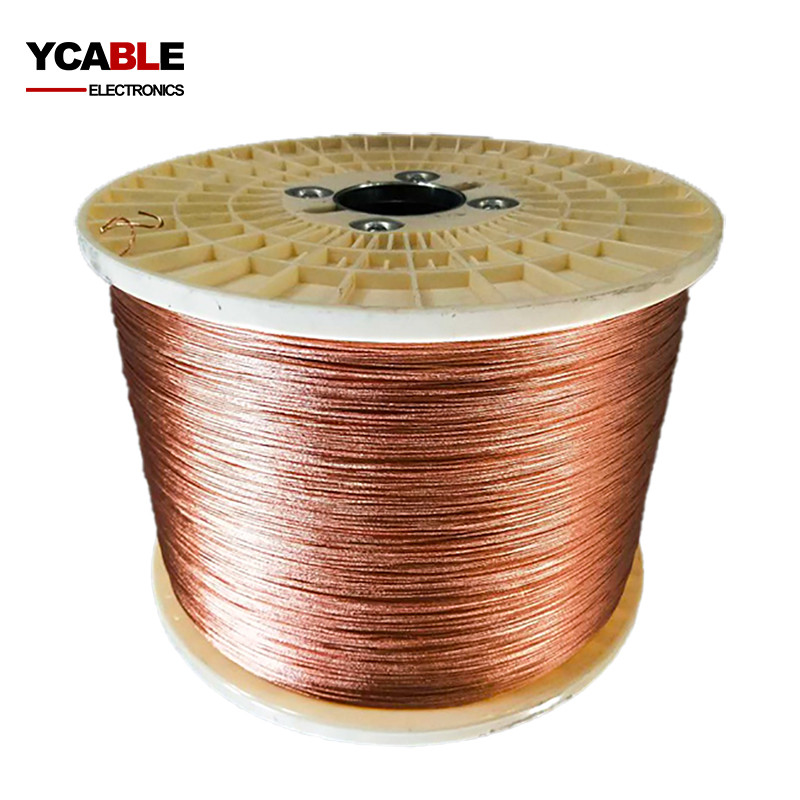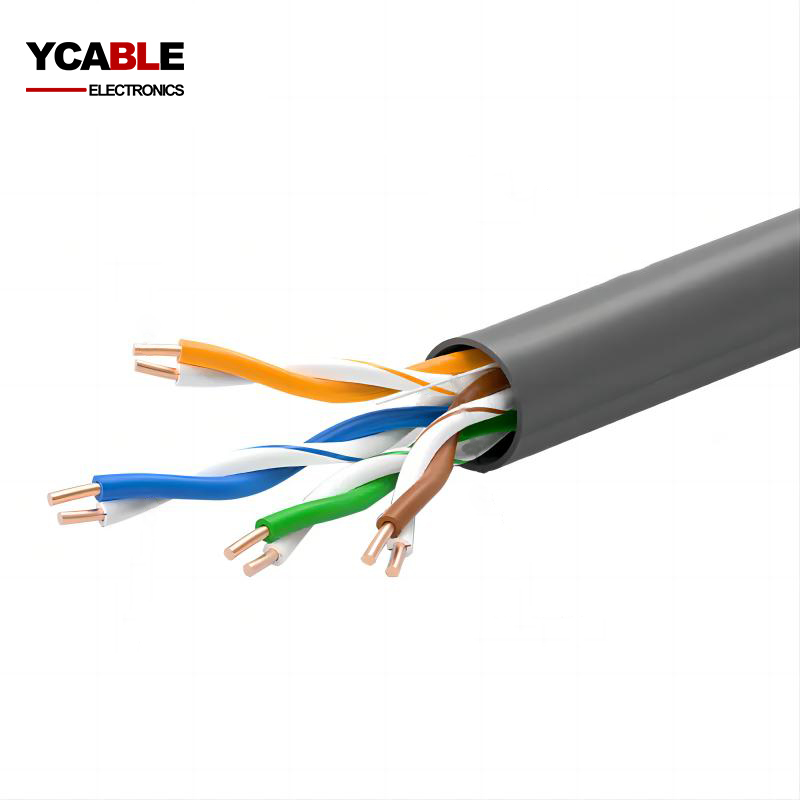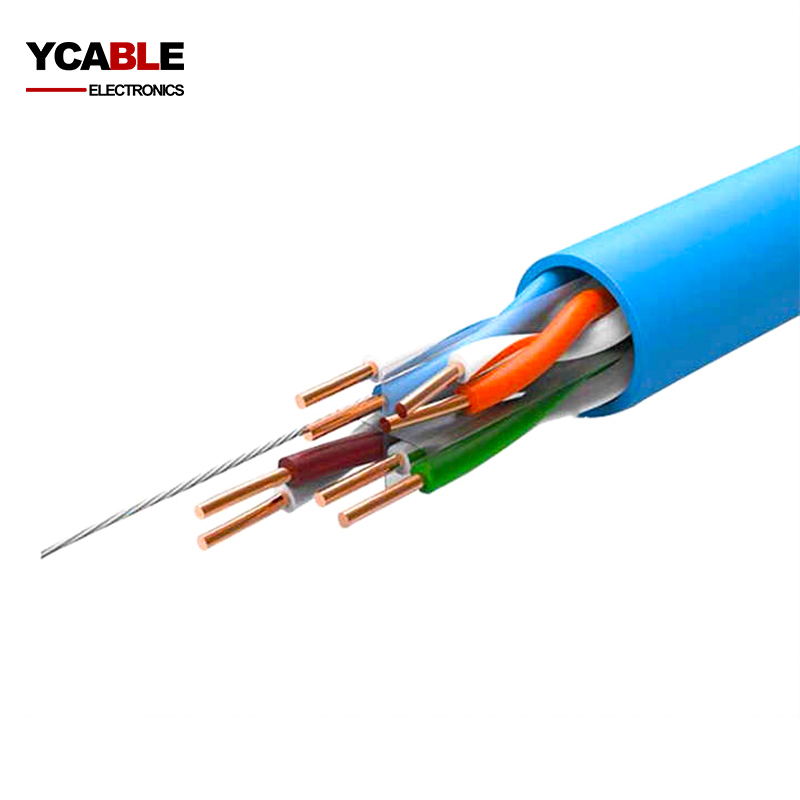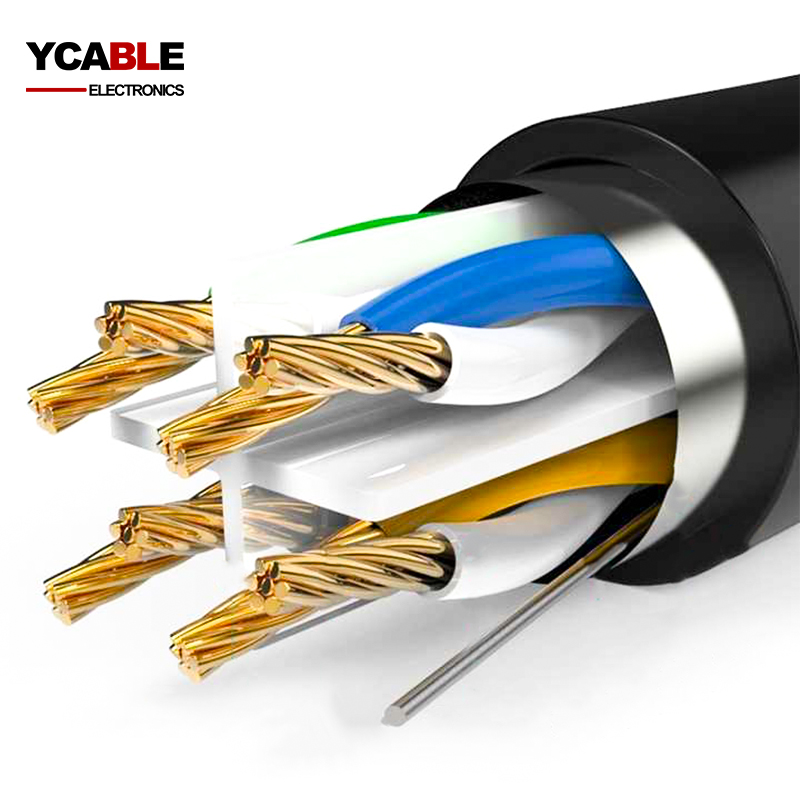What you should know about CCA cable
What is CCA Cable?
Ah, the elusive world of wires and cables, where the unsung heroes of electrical conductivity reside. You've probably heard of CCA Cable but wondered, "What's the real scoop?" Well, CCA stands for Copper Clad Aluminum, and it's essentially a bimetallic conductor that combines the durability and efficiency of copper with the lightweight and cost-effectiveness of aluminum.
Why CCA Cable?
In simple terms, CCA cable is like getting a two-for-one special at the conductor store. You get the best of both worlds—copper's conductivity and aluminum's affordability.
- Conductivity: The outer copper layer ensures efficient energy transmission, making CCA cables ideal for a variety of applications, from CCA speaker cables to CCA audio cables.
- Cost-Effectiveness: Aluminum is considerably cheaper than copper, which reduces the overall manufacturing costs. For businesses looking for budget-friendly options without sacrificing quality—bingo, you've hit the jackpot!
- Lightweight: Aluminum’s lighter weight makes CCA cables easier to handle and install. Imagine lugging around heavy cables all day; not a pretty picture, right?
Versatile Applications
The CCA cable's versatile nature makes it perfect for various applications. Whether you need CCA power cables for industrial setups, CCA Ethernet cables for robust networking, or CCA speaker cables for that crystal-clear audio experience, this conductor has got you covered.
Fine Print: Certifications & Customization
Here's where it gets interesting. If your business requires certain certifications, there are CCA wire models that meet the certification criteria. Moreover, the possibility to customize—be it color, size, or materials—gives you an edge to cater to your specific requirements.
So, Is CCA Cable the Right Fit?
Well, if you're looking for a balance between cost and performance, CCA cables offer a compelling case. However, it's crucial to weigh your specific needs and consult with experienced manufacturers like YCABLE ELECTRONICS, who can guide you through the nuances of CCA wire and cable solutions.
CCA Cable vs Copper Cable: The Ultimate Showdown
Ah, the age-old debate: CCA Cable vs. Copper Cable. It's like pitting a seasoned veteran against an up-and-coming rookie. Both have their merits, but how do they fare when put head-to-head? Let's jump into the ring and examine this electrifying duel.
Conductivity
- Copper Cable: The reigning champ when it comes to electrical conductivity. No material beats copper's ability to transmit electrical signals efficiently.
- CCA Cable (Copper Clad Aluminum): Though not as conductive as pure copper, the outer layer of copper still provides solid conductivity, making it suitable for applications like CCA speaker cables and CCA audio cables.
Winner: Copper Cable, but CCA isn't too far behind.
Cost-Effectiveness
- Copper Cable: Ah, the Achilles' heel of copper. It's expensive, and the costs can quickly pile up, especially for extensive installations.
- CCA Cable: A thrifty contender! The aluminum core significantly cuts down the manufacturing costs, making it a budget-friendly option.
Winner: CCA Cable, hands down.
Weight & Installation
- Copper Cable: Heavy and often cumbersome. More weight means higher shipping costs and more labor for installation.
- CCA Cable: Light as a feather, well, almost. Easier to handle and install, making it ideal for large-scale applications.
Winner: CCA Cable, by a country mile.
Durability
- Copper Cable: Extremely durable and resistant to corrosion. Ideal for outdoor installations and long-term applications.
- CCA Cable: While the copper layer offers some durability, it can't quite match the longevity of pure copper cables.
Winner: Copper Cable, no contest.
Customization and Certification
- Both types of cables can be customized to meet specific needs, from color to size and even material composition. Also, both can meet various certification criteria when manufactured by an experienced entity like YCABLE ELECTRONICS.
Winner: It's a tie!
If you're looking for unparalleled conductivity and durability, copper cable is your guy. But if you need a cost-effective, lightweight solution, then copper clad aluminum wire, or CCA cable, is a worthy contender.
Your choice boils down to the specific requirements of your project. Whether it's CCA Ethernet cables for networking or high-end audio setups needing CCA audio cables, understanding your needs is paramount.
Decoding the Classifications of CCA Ethernet Cables
Ah, the labyrinth of Ethernet cables, where not all cords are spun the same. While Ethernet cables are commonly made from copper, there's a growing interest in CCA Ethernet cables, or Ethernet cables made from Copper Clad Aluminum (CCA). But wait—there are classifications? Indeed! Strap in as we delve into the grades, the whys, and the hows of CCA Ethernet cable classifications.
The Types: From Cat5 to Cat8
- Ideal For: Basic networking needs.
- Speed: Up to 1000 Mbps (Gigabit)
- Bandwidth: Up to 100 MHz
- CCA Suitability: This is where CCA Ethernet cables often make their first appearance. Suitable for small-scale networking where cost-effectiveness is a priority.
- Ideal For: More robust networking.
- Speed: Up to 1000 Mbps
- Bandwidth: Up to 250 MHz
- CCA Suitability: A common choice for CCA Ethernet cables, particularly for indoor applications where higher bandwidth is required without breaking the bank.
- Ideal For: High-speed networks.
- Speed: Up to 10,000 Mbps (10 Gigabit)
- Bandwidth: Up to 500 MHz
- CCA Suitability: A stretch for CCA cables due to high-speed demands. Copper is usually preferred for these specifications.
CCA Cat7 cable UTP FTP SFTP
- Ideal For: Extremely high-speed networks.
- Speed: Up to 10,000 Mbps
- Bandwidth: Up to 600 MHz
- CCA Suitability: Rarely found in CCA format, as the need for high-speed and shielding often demands pure copper.
CCA Cat8 cable UTP FTP SFTP
- Ideal For: Future-proofed, high-speed networks.
- Speed: Up to 40,000 Mbps (40 Gigabit)
- Bandwidth: Up to 2000 MHz
- CCA Suitability: Almost exclusively copper due to the extreme demands on speed and bandwidth.
The Caveats: What to Watch For
- Signal Loss: CCA cables can experience more signal loss than their copper counterparts. Always consider the distance between connections.
- Durability: While Copper Clad Aluminum is lighter and more cost-effective, it's generally less durable than pure copper.
- Certifications: If you require specific certifications for your networking needs, consult with an experienced manufacturer like YCABLE ELECTRONICS who can guide you through the technicalities.
CCA Ethernet cable, CCA network cable, and CCA lan cable have their niches—especially when it comes to cost-sensitive projects requiring lighter, easier-to-install cabling. But tread carefully; know your network's requirements and consult with professionals to ensure you're choosing the most suitable cable classification for your needs.
So, the next time you're pondering CCA Ethernet cables, you'll have the inside track on what each class offers. After all, in the Ethernet world, knowledge is not just power—it's connectivity.
What is CCA Power Cable: The Powerhouse of Efficiency and Affordability
when it comes to powering up your world, the kind of cable you use can make all the difference. Enter the CCA Power Cable, a formidable contender in the power transmission arena. Manufactured with Copper Clad Aluminum (CCA) wire, this type of cable is making waves. But why, you may wonder? Let's plug in and find out.
The Backbone: What Constitutes a CCA Power Cable?
The construction of a CCA power cable is essentially a blend of aluminum at its core, clad with a layer of copper. This marriage of materials results in a cable that offers the conductivity of copper and the cost-effectiveness and light weight of aluminum. A win-win situation, wouldn't you say?
Advantages: Why Opt for CCA Power Cable?
- Cost-Effectiveness: Copper is the golden standard for conductivity but comes with a hefty price tag. By utilizing a CCA wire core, you save significantly on material costs.
- Lightweight: Aluminum is lighter than copper, which means CCA power cables are easier to handle, transport, and install.
- Versatility: CCA power cables are a great fit for a variety of applications, be it industrial, commercial, or residential.
- Electrical Efficiency: While not as conductive as pure copper, CCA still offers reasonable conductivity, making it a suitable option for many power applications.
Considerations: What to Watch For
- Limitations in High-Stress Applications: For extremely high electrical loads or long-distance transmissions, pure copper is generally the better option.
- Durability: While they are quite durable, CCA power cables can't fully match the longevity of their pure copper counterparts.
- Certifications: If your project requires specific certifications, consult an experienced manufacturer like YCABLE ELECTRONICS, who can guide you through suitable CCA wire models that meet your certification needs.
Applications: Where Can You Use Them?
From powering up electrical appliances to various industrial applications, CCA power cables have a broad range of uses. They are commonly seen in:
- Electrical grids
- Data centers
- Automotive applications
- Renewable energy installations
What is CCA Jumper Cables: Jump-Starting the Conversation on Efficiency and Affordability
Jumper cables—the unsung heroes that come to the rescue when your vehicle refuses to start. But have you considered the newer, lighter, and more budget-friendly contender in this arena? Allow me to introduce you to CCA Jumper Cables, which, you guessed it, are made from Copper Clad Aluminum (CCA) wire. Let's dive into the nitty-gritty of why these cables are worth your attention.
The Blueprint: Anatomy of a CCA Jumper Cable
At its core, a CCA jumper cable consists of an aluminum wire encased in a layer of copper. This design allows the cable to offer a blend of copper's superior conductivity and aluminum's reduced weight and cost.
Pros: The Bright Spots of CCA Jumper Cables
- Cost-Efficiency: As copper prices rise like a loaf of leavened bread, opting for CCA jumper cables can be a savvy move for your wallet.
- Lightweight: Don't break your back hauling around heavy copper cables. CCA cables offer a lighter alternative, making them easier to manage and store.
- Versatility: Much like their copper counterparts, CCA jumper cables are versatile and can be used in a range of vehicles.
- Adequate Conductivity: While not as efficient as pure copper, CCA wire still delivers a reasonable level of conductivity suitable for jump-starting most vehicles.
Cons: The Caveats You Should Be Aware Of
Durability: While CCA jumper cables offer decent durability, they may not withstand the test of time as well as copper cables, particularly in harsh conditions.
High-Load Limitations: For heavy-duty applications requiring immense electrical loads, copper is generally recommended.
Certification: If specific certifications are a must for your operations, consult with an expert manufacturer like YCABLE ELECTRONICS to ensure that the CCA cables you're considering meet the necessary requirements.
Applications: When to Use CCA Jumper Cables
Ideal for personal vehicles and light commercial applications, CCA jumper cables are a popular choice for:
- Personal cars
- Small to medium trucks
- Motorcycles
- Agricultural machinery
Copper vs CCA (Copper Clad Aluminum) Jumper Cables
When it comes to jumper cables, which serve as a lifeline for your vehicle in times of a dead battery, the material of the conductor plays a significant role. The two primary contenders in this arena are the traditional copper jumper cables and the increasingly popular CCA (Copper Clad Aluminum) jumper cables. Let's delve into a comparison of these two to help businesses decide which one aligns with their needs.
Conductivity & Performance:
- Copper: Renowned for its exceptional conductivity, copper jumper cables ensure a swift and secure transfer of current. This often translates to a quicker jump-start and less waiting time.
- CCA (Copper Clad Aluminum): While CCA wires have an aluminum core, they are clad in a thin layer of copper. They might not offer the same level of conductivity as pure copper, but they are still competent in conducting electricity, especially in short-length applications like jumper cables.
Weight:
- Copper: Being denser, copper jumper cables tend to be heavier. This might be a drawback if portability is a top concern.
- CCA (Copper Clad Aluminum): CCA cables are lighter due to the aluminum core, making them more user-friendly and easier to manage.
Flexibility:
- Copper: Slightly less flexible because of its denseness.
- CCA: Due to its aluminum core, CCA wires, including the cca audio cable and cca speaker cable, are more flexible and resistant to metal fatigue.
Cost:
- Copper: Given its superior conductivity and demand, pure copper cables come with a heftier price tag.
- CCA (Copper Clad Aluminum): More cost-effective, making them a popular choice for businesses and consumers looking for a budget-friendly option without compromising too much on performance.
Durability:
- Copper: Less prone to corrosion, ensuring a longer life-span.
- CCA: While CCA cables, including the cca speaker cable and cca audio cable, exhibit good resistance to corrosion, the aluminum core can oxidize over time, especially if the copper cladding is compromised.
Applications in Other Cables:
- Copper Clad Aluminum (CCA) wires have found their applications in a variety of cables such as cca speaker cable, cca audio cable, and other cca cables. This versatility can be attributed to their balance between performance and cost.
What is CCA alarm cable?
Ah, you're digging into the finer details—a commendable move, especially in the world of alarm cables where specifications can make or break a system. Allow me to serve up the nitty-gritty specifications of CCA Alarm Cable, brought to you by the magic of Copper Clad Aluminum (CCA) wire technology.
Core Composition
- Material: Copper-Clad Aluminum (CCA)
- Design: Solid or stranded aluminum core, clad in a layer of copper
Conductivity
- Conductivity Range: Generally around 65% IACS (International Annealed Copper Standard), depending on the specific blend of copper and aluminum used.
Insulation
- Material: Often PVC (Polyvinyl Chloride), PE (Polyethylene), or other thermoplastics
- Color Coding: Generally available in different colors for easy identification
Shielding (Optional)
- Type: Foil shield, braided shield, or combination
- Coverage: 80% - 95% shielding effectiveness for reduced interference
Outer Jacket
- Material: Commonly PVC or other weather-resistant materials
- Color: Various, often customizable
Electrical Properties
- Voltage Rating: Typically 300V or as specified
- Temperature Range: Generally -20°C to +75°C
Dimensional Aspects
- Gauge: Ranging from 18 AWG to 22 AWG commonly for alarm cables
- Cable Length: Usually comes in spools of 100m, 250m, or 500m or as customized
Applications
Suitable for residential and commercial security systems, including:
- Intrusion alarms
- Access control systems
- Low-voltage signaling circuits
Special Features (Optional)
- Fire Resistance: Available in FR, FRLS, and other fire-resistant variants
- Customization: Ability to replace materials, control size, change colors, etc., based on customer requirements
The CCA Alarm Cable combines the best of copper's electrical prowess with aluminum's lightweight and cost-effective charm. Whether you're looking to install a new security system or upgrade an existing one, this could be a robust option, provided it meets your system's technical requirements.
What is CCA Speaker Cable?
CCA speaker cable refers to a type of speaker wire where the conductor is made of an aluminum core that is thinly clad or coated with copper. This design combines the beneficial properties of both copper and aluminum to deliver a cable that's both efficient and cost-effective.
Key Characteristics:
- Conductivity & Performance: CCA speaker cables might not match the conductivity levels of pure copper cables, but they still offer competent conductivity, which is crucial for transmitting audio signals without significant loss.
- Lightweight: Thanks to the aluminum core, CCA speaker cables are lighter than their pure copper counterparts, making them easier to handle and install.
- Flexibility: The aluminum core imparts greater flexibility to the CCA speaker cable, making it more resilient against metal fatigue and easier to route in tight spaces.
- Cost-Effective: CCA speaker cables provide a more budget-friendly alternative to pure copper cables without compromising excessively on performance.
- Durability: While CCA cables, including the CCA speaker cable, exhibit decent resistance to corrosion, there's a risk of oxidation in the aluminum core, especially if the copper cladding gets damaged.
Applications:
CCA speaker cables are widely used in:
- Home audio systems
- Car audio systems
- Professional sound systems
- Public address systems
Given their balance of performance, flexibility, and cost, they've become a sought-after choice for many audio enthusiasts and professionals.
Considerations:
When opting for CCA speaker cables, it's essential to ensure they're of high quality. A consistent and uniform copper cladding is vital for optimal performance. Furthermore, if the installation environment is prone to moisture or corrosive elements, extra precautions, such as using insulated or sheathed cables, might be necessary.
Specification of CCA Speaker Cable
When selecting a CCA speaker cable, or any cable for that matter, understanding its specifications is crucial to ensure it aligns with the desired application. These specifications govern the cable's performance, compatibility, and safety. Here's a comprehensive breakdown of typical specifications you might encounter for a CCA speaker cable:
Conductor Material:
- Type: Copper Clad Aluminum (CCA)
The core of the cable is made of aluminum, which is then clad or coated with a layer of copper.
Gauge (AWG):
This refers to the thickness of the wire. Common gauges for speaker cables range from 12 AWG (thicker) to 18 AWG (thinner). The choice of gauge will affect the cable's resistance and its suitability for certain distances:
- 12-14 AWG: Suitable for longer runs, above 50 feet.
- 16 AWG: Suitable for runs between 25 to 50 feet.
- 18 AWG: Suitable for shorter runs, less than 25 feet.
Number of Conductors:
- Typically, a speaker cable will have two conductors (positive and negative). However, specialized applications or setups might require more.
Insulation Material:
- This material encases the CCA wire to protect it from external elements and prevent short circuits. Common materials include PVC (Polyvinyl Chloride) or PE (Polyethylene).
Jacket Material:
- This is the outermost layer, often designed to offer added protection against physical damage, moisture, and other environmental factors. Materials might include PVC, rubber, or other durable polymers.
Capacitance:
- Expressed in picofarads per foot (pF/ft), this specification impacts the cable's ability to store an electrical charge. Lower capacitance is typically preferred for speaker cables to avoid high-frequency roll-off.
Resistance:
- Given in ohms per foot (Ω/ft), it indicates how much resistance the cable offers to the flow of electrical current. Lower resistance is generally desired for better audio signal transmission.
Inductance:
- Measured in microhenries per foot (µH/ft), it determines the cable's tendency to oppose changes in current. Lower inductance values are typically preferred for speaker cables.
Color and Markings:
- To help with identification and polarity, the CCA speaker cable might have distinct colors or markings for the positive and negative conductors.
Understanding the specifications of the CCA speaker cable is pivotal for optimal audio performance and safety. Whether you're looking to integrate them into a home theater, professional sound system, or any other application, ensuring the specs match your requirements is paramount. And, if customizations or certifications are necessary, manufacturers like YCABLE ELECTRONICS, with their vast experience and capabilities, can provide tailored solutions to meet diverse needs.

